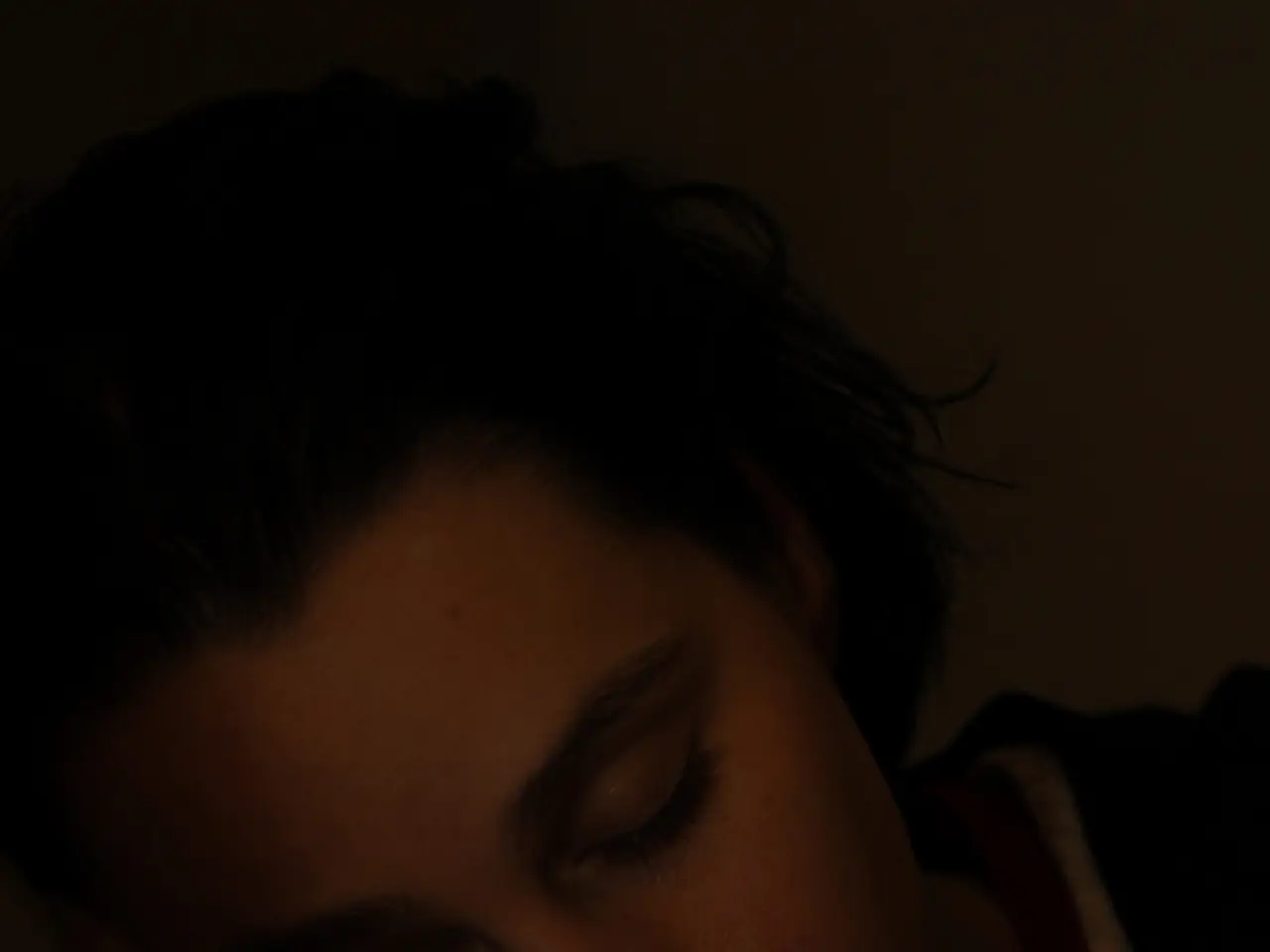Elderly Insomnia: Root Causes, Noticeable Signs, and Potential Solutions
=================================================================================
As we age, getting a good night's sleep can become a challenge. Several primary sleep disorders and various factors can affect older adults' sleep quality, leading to insomnia. This article explores the common causes of insomnia in older adults, treatments, and tips for improving sleep.
Insomnia in older adults is often a complex issue, with multiple contributing factors. These may include medical conditions, mental health issues, hormonal changes, lifestyle factors, medications, sleep disorders, pain, and changes in sleep architecture and circadian rhythms.
Medical conditions such as arthritis, chronic pain, heart failure, asthma, diabetes, gastrointestinal reflux disease (GERD), hyperthyroidism, dementia, and disordered breathing like obstructive sleep apnea can disrupt sleep. Mental health disorders like depression, anxiety, and personality disorders are also strongly linked to insomnia in older adults.
Hormonal changes, particularly in older women due to menopause with decreases in estrogen and progesterone, cause night sweats and hot flashes that interrupt sleep. Additionally, melatonin levels, which regulate sleep-wake cycles, decline with age, disrupting circadian rhythms.
Medications commonly taken by seniors, including blood pressure medications, antidepressants, steroids, and other prescription drugs, may cause restlessness or drowsiness that affects sleep. Lifestyle changes, such as reduced physical activity, altered daily routines, less social interaction, and decreased exposure to natural light, can negatively impact circadian rhythms and sleep quality.
Sleep disorders such as insomnia itself, restless legs syndrome, nocturia (frequent nighttime urination), and sleep apnea increase in prevalence with age and contribute directly to poor sleep. Pain and nighttime discomfort from chronic conditions or increased sensitivity at night also frequently interrupt sleep in older adults.
Aging-related changes in sleep architecture and circadian rhythm shifts further predispose older adults to awaken earlier and have lighter, less restorative sleep. These causes often coexist, requiring a holistic and personalized approach to assessment and treatment.
Cognitive behavioral therapy for insomnia (CBTi) is a first-line treatment for insomnia. Developing healthy sleep habits, such as eating a balanced diet, getting regular exercise, avoiding alcohol, nicotine, and caffeine close to bedtime, making the bedroom an inviting space for sleep, avoiding naps, eating meals on a regular schedule, managing stress, limiting fluids before bedtime, going to sleep and waking up around the same time each day, and avoiding certain medications can help with insomnia.
Insomnia in older adults is often treated with a combination of medications, natural remedies, and changes to sleep routines. Several medications may help with insomnia, including benzodiazepines, nonbenzodiazepine hypnotics, melatonin receptor agonists, antihistamines, and antidepressants. Alternative or complementary medicine options for insomnia include melatonin and valerian root, but lack of regulation means formulas and doses can vary greatly between brands and products.
It is essential to speak with a healthcare professional if you experience symptoms of insomnia or other sleep disorders. Lack of sleep can affect daily activities, mood, and overall function. Treatment can help improve symptoms and a person's quality of life.
- Aging and longevity, a significant aspect of life, can lead to challenges with sleep quality.
- In the realm of science, the causes of insomnia in older adults are multifaceted and complex.
- Sleep disorders like insomnia, restless legs syndrome, nocturia, and sleep apnea become more prevalent with aging.
- Chronic diseases such as arthritis, heart failure, asthma, diabetes, and gastrointestinal reflux disease can disrupt sleep patterns in the elderly.
- Respiratory conditions, including asthma and disordered breathing like obstructive sleep apnea, can cause sleep disturbances.
- Digestive health issues, such as gastrointestinal reflux disease (GERD), can also impact sleep quality in older adults.
- Eye health can be affected by menopause-related hormonal changes, causing night sweats and hot flashes that disrupt sleep.
- Hearing problems can lead to sleep disruptions due to difficulty hearing noises or alarms, affecting the sleep cycle.
- Health and wellness, in general, play a crucial role in combating insomnia in older adults.
- Autoimmune disorders and mental health issues like depression, anxiety, and personality disorders are linked to insomnia in older adults.
- Cardiovascular health is essential, as heart conditions can lead to sleep disturbances.
- Medications, including blood pressure medications, antidepressants, steroids, and other prescription drugs, can cause restlessness or drowsiness that affects sleep.
- Lifestyle factors, such as reduced physical activity, altered daily routines, less social interaction, and decreased exposure to natural light, can negatively impact sleep quality.
- Skin-care routines and therapies and treatments may indirectly impact sleep by promoting relaxation and reducing stress.
- Nutrition plays a critical role in promoting overall health and sleep hygiene, especially during the aging process.
- Womens' health, particularly hormonal changes during menopause, can cause night sweats and hot flashes that interrupt sleep.
- Mens' health should also be considered in understanding the causes of sleep disorders and insomnia.
- Treatment for insomnia can involve a combination of lifestyle changes, medications, natural remedies, and cognitive behavioral therapy.
- Education and self-development are essential to understanding the impact of insomnia on overall health and well-being, as well as the various therapies and treatments available.





